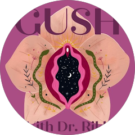First things first: You may be asking yourself; What is ketamine?
It was initially used as an anesthetic on battlefields and in operating rooms. Now, this medication is getting popular as a promising treatment for some cases of severe depression, which is the most significant cause of disability globally. Recent estimates reveal that 16 million adults suffer an episode of severe depression in a year in the US. Similarly, suicide rates grew dramatically between 1999 and 2016, reaching more than 30 percent in 25 states. Ketamine can play a significant part in treating depression associated with suicide due to its quick action.
How does it work in Depression?
Ketamine’s mechanism of action is not entirely understood. However, because ketamine exerts an antidepressant effect via a novel route, it can assist individuals in successfully managing depression when other treatments have failed (1).
One possible target for ketamine is the brain’s NMDA (N-methyl-D-aspartate) receptors. Ketamine raises the amount of a neurotransmitter called glutamate in the gaps between neurons by attaching to these receptors (2). After that, glutamate stimulates connections in another receptor known as the AMPA receptor. When NMDA receptors are initially blocked and AMPA receptors are activated, other substances are released that aid
neurons in communicating with one another via novel pathways. This process, termed synaptogenesis, is believed to affect mood, cognition, and thoughts (2).
Ketamine can also affect depression in other ways. For instance, it may inhibit inflammation-related signals, which have been associated with mood disorders, or it may improve communication within specific brain areas (3). However, this mechanism is still under investigation.
Trust Ketamine to get rid of your stress, depression, anxiety, and chronic pains.
Benefits when used properly
Numerous patients benefit from short-term ketamine use. This drug is proven beneficial in assisting individuals in navigating their way to the most effective treatment compared to other management options, which include cognitive-behavioral therapy and other additional medications that can take years.

For instance, a patient has frequently been prescribed a new antidepressant with a mild increasing dose. However, it can take two weeks to nearly four months to determine whether the medication is functioning as it should be. If not, the patient must restart from the beginning, try other drugs for another four months, and so on.
What’s more challenging is that if somehow you may find a drug that works for you, it will cease to work at some point. Then you must repeat the process. Thus, a medication such as ketamine that can provide relief and fill the gap is highly beneficial. Studies have also shown that ketamine triggers glutamate production, which helps the brain make new connections. This increases the brain’s adaptability and ability to form new pathways, allowing patients to adopt more positive thoughts and behaviors (4). Additionally, after just 24 hours, more than half of the participants demonstrated a significant reduction in depression symptoms in numerous studies. Unfortunately, these people did not respond to other antidepressant drugs (5).
However, remember that this is not a first-line treatment option but rather a temporary
solution.
References:
- Berman RM, Cappiello A, Anand A, Oren DA, Heninger GR, Charney DS, et al. Antidepressant
effects of ketamine in depressed patients. Biological psychiatry. 2000;47(4):351-4. - WORKS HKJCP. Ketamine/esketamine: Putative mechanisms of action. 2020;19(1):32.
- Sattar Y, Wilson J, Khan AM, Adnan M, Azzopardi Larios D, Shrestha S, et al. A Review of the
Mechanism of Antagonism of N-methyl-D-aspartate Receptor by Ketamine in Treatment-resistant
Depression. Cureus. 2018;10(5):e2652-e. - Rosenblat JD, Carvalho AF, Li M, Lee Y, Subramanieapillai M, McIntyre RSJTJocp. Oral ketamine
for depression: a systematic review. 2019;80(3):0-. - Corriger A, Pickering GJDd, development, therapy. Ketamine and depression: a narrative review.
2019;13:3051.

















